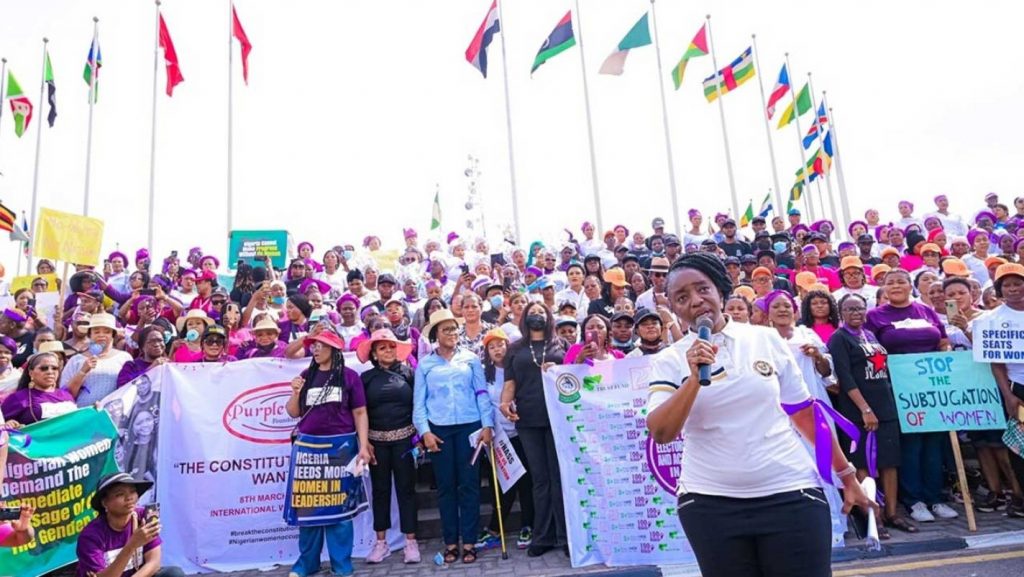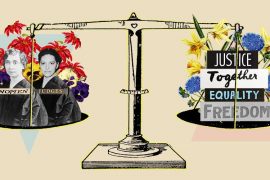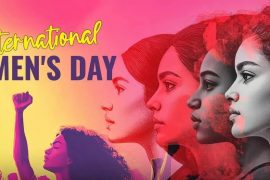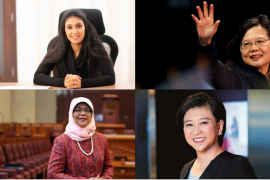When the National Assembly in Nigeria rejected five gender bills that sought to achieve equality, many thought they would sit back to draw sympathy from the society.
But Nigerian women are pushing harder to ‘break the bias’ after seeing their social campaigns, advocacies and lobbying thrown out of the window.
Hundreds of women groups have staged protests to force a reversal of what they term anti-gender laws that oppose the principle of equality and fairness in the country.
They have mobilised influential women including Aisha, the wife of President Muhammadu Buhari, and wives of state governors across the country.
“The recent decision by the National Assembly to ignore the long-standing clamour for Affirmative Action for Nigerian women was contrary to the very high expectations of forward-looking Nigerian men and women,” Mrs Buhari said in a statement after the National Assembly turned down the pro-women bills.
Nigerian women versus National Assembly
The National Assembly in early March voted against bills providing for affirmative action for women in political parties’ administration.
Nigerian lawmakers also voted against the bill to create special seats for women in the national and state assemblies.
Both bills got an abysmal number of votes during the clause-by-clause consideration during the ongoing constitution amendment at both chambers in the parliament.
Since then, Nigerian women have embarked on ‘mother of protests’ until the lawmakers accede to their demands.
What do Nigerian women want?
Nigerian women are calling on lawmakers to revisit different provisions of the constitution undergoing amendment on issues that concerns women’s rights, political participation and governance.
Specifically, they are protesting against the denial of citizenship to a foreign-born husband of a Nigerian woman.
Also, women’s inability to become indigenes of their husband’s state after five years of being married, the denial of 35 per cent appointed positions, party administration and leadership and a rejection of allotting specific seats for women in the National Assembly are also sore points for them.
The bills were rejected a day after the celebration of the 2022 International Women’s Day.
Amnesty International in Nigeria said it “calls on the National Assembly to reconsider the gender bills and ensure their speedy passage.
“Women and girls in Nigeria have the right to live in dignity, free from discrimination and must be able to fully enjoy their human rights without exclusions based on gender.”
Pushing harder
In continuation of weeks of protests, different Nigerian women groups on Tuesday besieged the National Assembly to intensify their push for a more equitable society.
Two weeks ago, Speaker for Nigeria House of Representatives Femi Gbajabiamila called for a rescission of the votes on the affected bills after the lawmakers held an executive session over the proposed legislation.
Since then, the House has only asked for calm from the women, saying it is working on their requests. And this is not going well with them.
CEO of Nigerian Women Trust Fund Mufuliat Fijabi said women have resolved to vote out male lawmakers that voted against the gender bills during the next elections.
“We have a patriarchy system which has eaten very deep into our society,” Fijabi said. “These no doubt have affected the consideration they have been giving to these bills.
“They need to be purged of their beliefs on what the women represent and their understanding of the capabilities and abilities of women.”
The Guardian





Comments are closed.